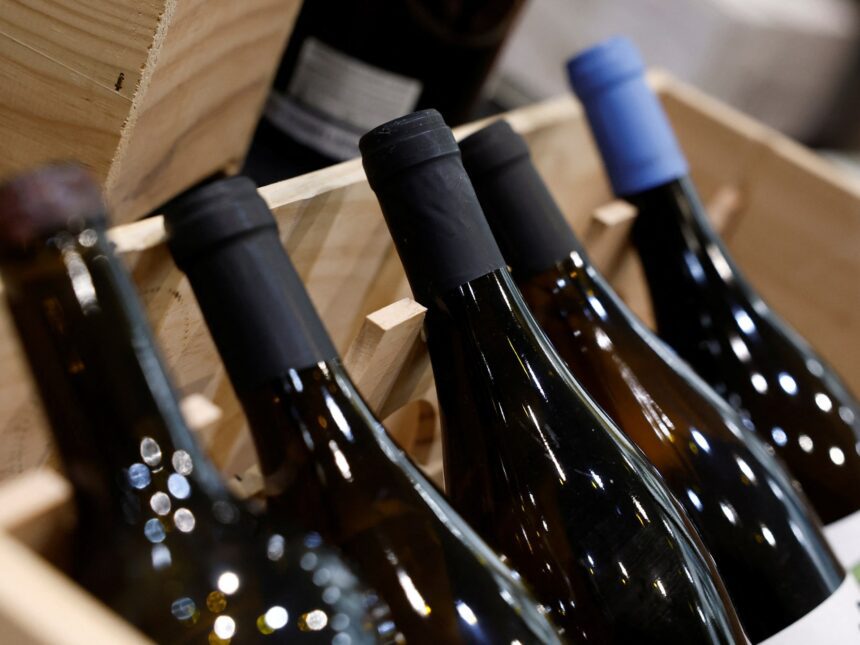The President of the United States, Donald Trump, has issued a warning that he will implement tariffs of 200 percent on wine, champagne, and other alcoholic products from European Union countries if the bloc proceeds with its planned tariff on US whiskey.
The EU has announced tariffs on $28bn worth of US goods, including a 50 percent levy on US bourbon whiskey, as a retaliation after US tariffs on steel and aluminium imports were put into effect the day before.
In response to the EU’s announcement, Trump wrote on his Truth Social platform, “If this Tariff is not removed immediately, the U.S. will shortly place a 200% Tariff on all WINES, CHAMPAGNES, & ALCOHOLIC PRODUCTS COMING OUT OF FRANCE AND OTHER E.U. REPRESENTED COUNTRIES.”
He criticized the 50 percent levy on US whiskey as “nasty” and referred to the EU as “one of the most hostile and abusive taxing and tariffing authorities in the World” that was created with “the sole purpose of taking advantage of the United States.”
France quickly responded by stating that they would resist any tariffs on alcohol.
The Foreign Trade Minister of France, Laurent Saint-Martin, said on X, “We will not give in to threats.” He emphasized that the US was escalating a trade war that Trump had “chosen to start” and that France was “determined to retaliate.”
Olof Gill, the European Commission spokesperson in charge of trade issues, urged the US to revoke its duties on steel and aluminium.
The US Commerce Secretary, Howard Lutnick, mentioned plans to speak with his European counterparts without providing further details.
‘Fed up’
If the US were to impose a 200 percent tariff on alcohol imports from the EU, a previously untariffed $15 bottle of Italian prosecco could potentially increase in price to $45. Similarly, Europe’s response to Trump’s steel and aluminium tariffs could lead to the cost of a $30 bottle of bourbon in Paris rising to $45.
Trump’s latest tariff threats suggest that even companies that have publicly supported him, like the French luxury goods company LVMH, could be negatively affected.
These tariff impositions raise questions about whether the broader business community would be willing to challenge the trade wars that have impacted the stock market and worried consumers.
Nicolas Ozanam, the director general of the federation representing French wine and spirit exporters (known as FEVS), expressed that exporters were “fed up with being systematically sacrificed for issues unrelated to our own.”
In the US, the head of the Distilled Spirits Council, Chris Swonger, referred to the EU’s plans as “deeply disappointing,” indicating that they would have a negative impact at a time when the industry was facing a “slowdown” in its domestic market.
Trump’s trade wars have also targeted Canada, Mexico, and China, alleging that they are not doing enough to combat fentanyl smuggling or illegal immigration into the United States.
He has focused on specific commodities such as steel, aluminium, and copper.
Uncertainty surrounding Trump’s trade policies and concerns that they could trigger a recession have disrupted financial markets.










